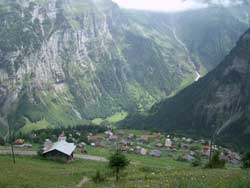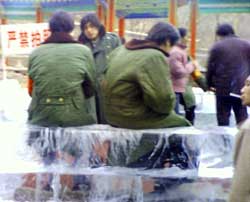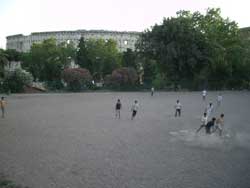

Area of Specialization: Culture

My work focuses on ways culture and discourse intersect to generate and transform perceptions and practices.
Recent & Current Research:
My cultural research focuses on tourism, culture jamming, surveillance, and self-transformation relating to intercultural immersion. I also have an area focus on the Middle East, examining discursive constructions, competing collective identities, and transformative meanings.
Sample Published Works: To access all publications, go to Academia.edu
• Milstein, T., & Pulos, A. (2015). Culture jam pedagogy and practice: Relocating culture by staying on one’s toes. Communication, Culture, & Critique, 8 (3), 395-413.
• Milstein, T. (2013). Communicating “normalcy” in Israel: Intra/intercultural paradox and interceptions. Tourism and Cultural Change, 11 (1-2), 73-91.
• Peterson, J., Milstein, T., Chen, Y.W., & Nakazawa, M. (2011). Self-efficacy in communication: The development and validation of a sojourners’ scale. Journal of International and Intercultural Communication. 4 (4), 290-309.
• Milstein, T., & Manusov, V. (2009). Oppositional discourse in Israeli media: Reflections of multiple cultural identities in coverage of the Rabin-Arafat handshake. Howard Journal of Communications. 20 (4), 353-369.
• Milstein, T. (2005). Transformation Abroad: Sojourning and the Perceived Enhancement of Self-Efficacy International Journal of Intercultural Relations, 29 (2), 217-238.
• Manusov, V., & Milstein, T. (2005). Interpreting Nonverbal Behavior: Representation and Transformation Frames in Israeli and Palestinian Media Coverage of the 1993 Rabin-Arafat Handshake Western Journal of Communication, 69 (3), 183-201.
• Howard, P., Carr, J., & Milstein, T. (2005). Digital Technology and the Market for Political Surveillance. Surveillance & Society, 3(1), 59-73.
• Howard, P., & Milstein, T. (2004). Spiders, Spam, and Spyware: New Media and the Market for Political Information. In Mia Consalvo (Ed.) Internet Research Annual: Selected Papers from the Association of Internet Researchers Conference. 2000-2002, vol. 1. Peter Lang.



Last modified: 1/9/2018
